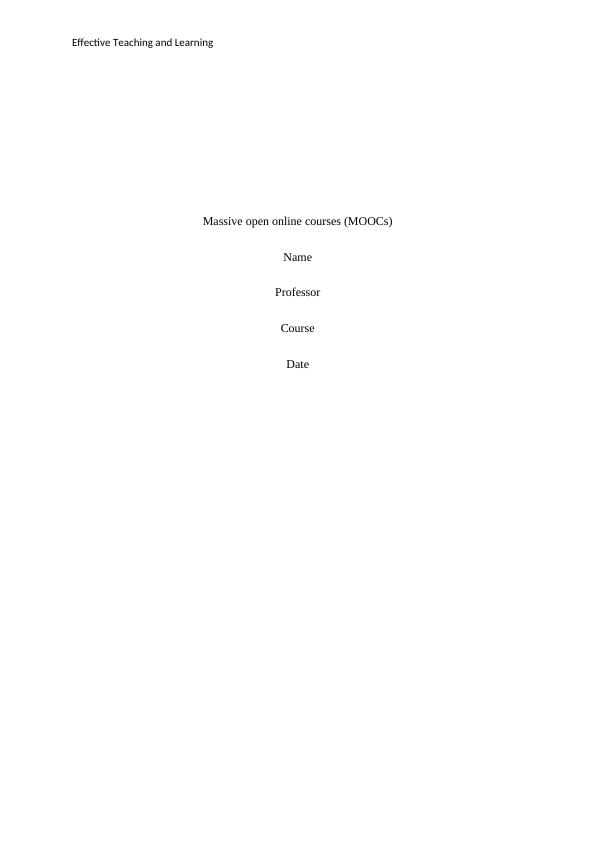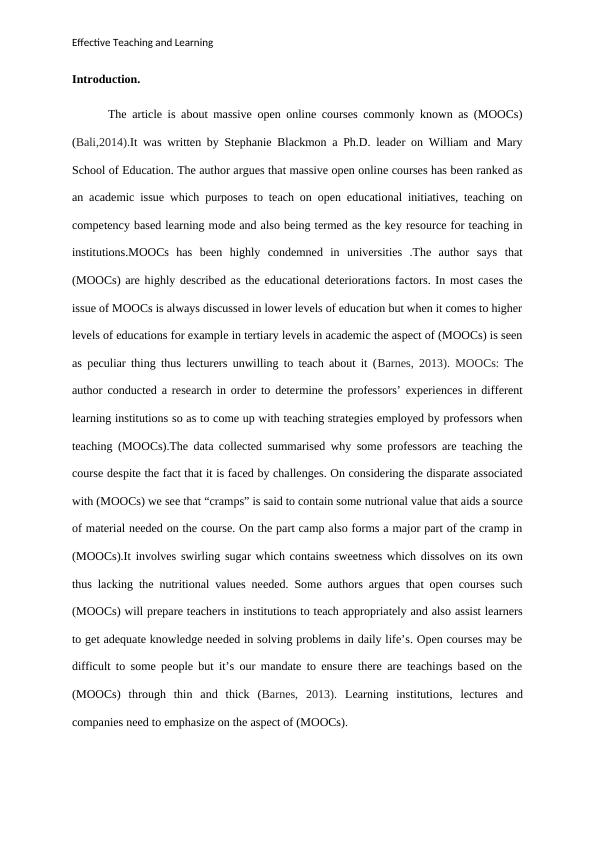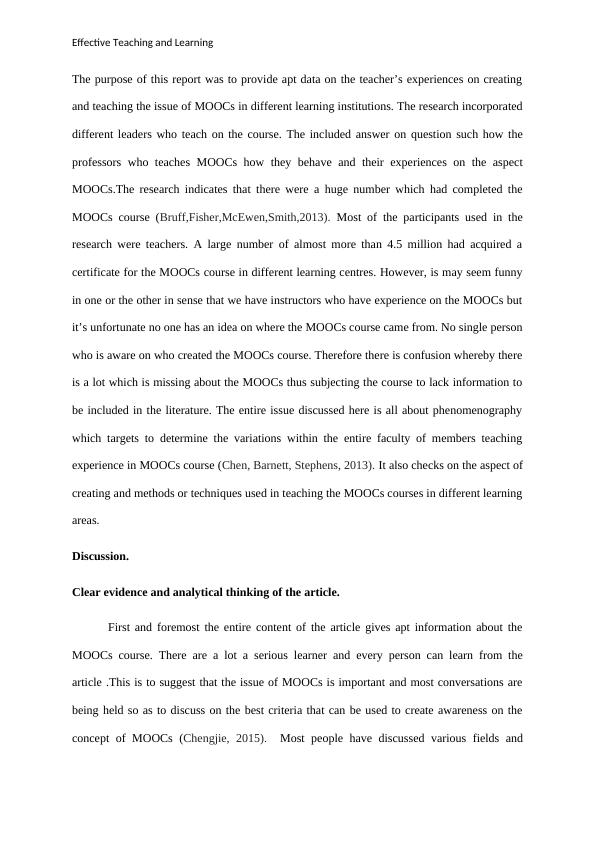Effective Teaching and Learning with Massive Open Online Courses (MOOCs)
Examining professors' experiences with developing and teaching a MOOC, including their motivations, benefits, and challenges.
10 Pages2984 Words77 Views
Added on 2023-06-04
About This Document
The article discusses the experiences of professors teaching Massive Open Online Courses (MOOCs) and the benefits and challenges of this online learning mode. It includes a qualitative research on the variations in experiences of MOOCs teachers and learners. The article also highlights the importance of technology in education and the need for a complete solution to communicate the benefits and challenges of MOOCs. Desklib offers study material on MOOCs for various courses and universities.
Effective Teaching and Learning with Massive Open Online Courses (MOOCs)
Examining professors' experiences with developing and teaching a MOOC, including their motivations, benefits, and challenges.
Added on 2023-06-04
ShareRelated Documents
End of preview
Want to access all the pages? Upload your documents or become a member.
New Technologies in Education and Training
|14
|4817
|72
Evaluating the Strategic and Leadership Challenges of MOOCs
|13
|6969
|407
Evaluation of Successful Negotiation MOOC and Future of MOOCs
|12
|653
|64
RESEARCH AND LITERATURE REVIEW
|7
|1146
|344
MOOCs: Innovation & Technology in Online Learning | Desklib
|12
|1424
|470
Innovation and Technology: Exploring the Future of Massive Online Courses (MOOC)
|12
|926
|246



